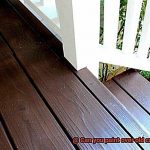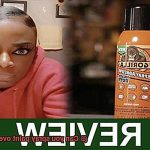Do you love crafting, but hate the high cost of resin? What if I told you there might be a solution hiding in your own home? That’s right, clear Elmer’s glue could potentially replace resin in your DIY projects. But before we get too excited, let’s take a closer look.
First things first, what exactly is resin? It’s a liquid polymer that, when mixed with a hardener, creates a durable plastic-like material. This versatile material is perfect for creating jewelry, coasters, and even furniture. However, it can be pricey and difficult to find. Enter clear Elmer’s glue.
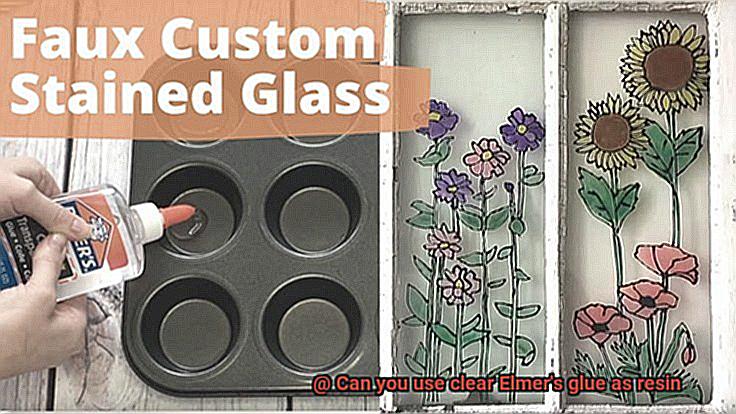
While clear Elmer’s glue shares some properties with resin – like transparency and adhesion – it isn’t an exact substitute. Although it may work for certain projects, it isn’t as durable or long-lasting as resin. Plus, it doesn’t hold up well against heat and moisture which can lead to deterioration over time.
Before jumping into using clear Elmer’s glue as resin, consider its limitations and whether it will meet your needs. With that said, why not give it a try? Get out your crafting supplies and see what kind of creative projects you can come up with.
What is Clear Elmer’s Glue?
Contents
Clear Elmer’s Glue is a water-based adhesive that has become a household name for its versatility and ease of use. It is manufactured by Elmer’s Products, Inc., a company that has been in business since 1947 and is based in Ohio, USA. Millions of people around the world have used Clear Elmer’s Glue for a variety of applications, from repairing household items to creating intricate arts and crafts projects.
The glue is made primarily from polyvinyl acetate (PVA), a synthetic polymer that forms a strong bond when it dries. Water and other additives are also included in the mix to make the glue easy to apply and improve its performance in various conditions. Clear Elmer’s Glue is non-toxic, washable, and safe for anyone to use.
One of the standout features of Clear Elmer’s Glue is its transparency when it dries. This makes it an ideal choice for applications where the appearance of the adhesive matters, such as attaching paper or other materials to surfaces or adding a glossy finish to artwork. The glue can even be painted over once it has dried, making it perfect for all sorts of creative projects.
Although Clear Elmer’s Glue is an excellent adhesive, it should not be confused with resin. Resin is made from organic materials like epoxy, polyester, or polyurethane and is known for its durability and strength. Resin is typically used in applications like jewelry making and tabletops where high resistance to heat, water, and chemicals are required.
Clear Elmer’s Glue does not have the same level of clarity as resin and can leave behind a cloudy or hazy appearance that can affect the overall look of the project. It may also not be as resistant to certain elements as resin, making it unsuitable for specific applications. Therefore, using Clear Elmer’s Glue as a substitute for resin is not recommended.
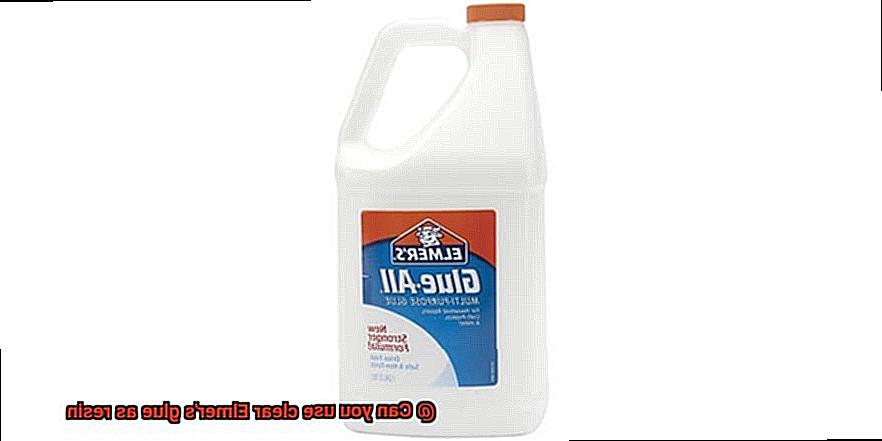
What is Resin?
Chances are, it’s resin. This versatile substance has become increasingly popular in recent years for its durability and glossy finish.
Resin is a thick liquid that hardens when cured, resulting in a durable and glossy surface. It can be made from various materials, such as tree sap or synthetic resins derived from petroleum. One of the most popular types of resin is epoxy resin, renowned for its strength, clarity, and versatility. Epoxy resin is created by combining two components – a resin and a hardener – which chemically react to form a solid material.
But epoxy resin isn’t the only type out there. Polyurethane resin is also commonly used in industrial settings, prized for its durability and flexibility. This type of resin is often used for producing car parts or electronic components.
Why choose resin? For one, it’s incredibly tough and robust, making it ideal for applications where high-level protection is necessary. Furthermore, it’s incredibly versatile and can be utilized in various ways such as coating surfaces, creating molds, and even as an adhesive.
However, selecting the appropriate type of resin is crucial to ensure optimal results. Using an incorrect type of resin may not yield the same clarity and durability. For instance, using Elmer’s Glue as a substitute for resin may not produce similar outcomes.
Differences between Clear Elmer’s Glue and Resin
Let me help you out. Clear Elmer’s glue is a water-based adhesive that works wonders for small-scale projects such as school projects, paper crafts, and minor repairs. It dries quickly and creates a strong bond between materials such as paper, cardboard, and fabric. In contrast, resin is a synthetic compound that is widely used in the manufacturing of plastics, adhesives, and coatings. It is known for its durability, strength, and resistance to abrasion, moisture, and chemicals. Resin is often used in jewelry making, furniture manufacturing, boat building, and automotive repair.
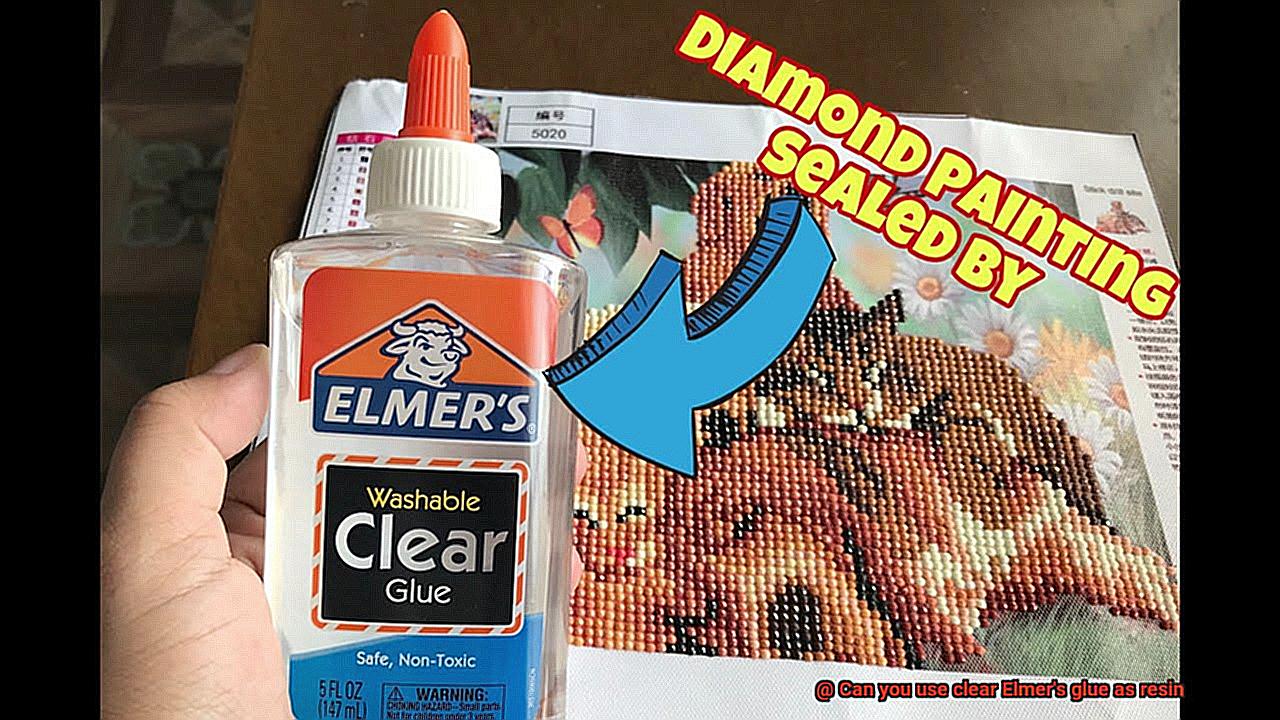
One of the main differences between these two materials is their chemical composition. Resin is made up of synthetic materials such as polyester, epoxy, or polyurethane which form a hard and durable material when cured. However, clear Elmer’s glue is made up of natural ingredients such as water and polyvinyl acetate (PVA) which makes it less durable than resin.
Another significant difference is their curing time. Clear Elmer’s glue dries relatively quickly, usually within 30 minutes to an hour depending on the thickness of the application. This makes it ideal for projects that require a quick turnaround time. On the other hand, resin takes much longer to cure and may take several hours or even days to fully harden. This makes it perfect for projects that require a strong and durable bond over time.
If you’re wondering what types of projects each adhesive is best suited for, let me give you some examples. Clear Elmer’s glue is ideal for school projects, paper crafts, and minor repairs where quick drying time and a strong bond are essential. Resin, on the other hand, is perfect for projects that require durability and resistance to harsh conditions such as jewelry making, furniture manufacturing, boat building, and automotive repair.
Advantages of Using Resin over Clear Elmer’s Glue
Clear Elmer’s glue may seem like a quick fix, but it simply can’t compare to the strength and durability of resin. As an expert in this field, I am here to enlighten you on the numerous advantages of using resin instead of clear glue for all your crafting and DIY needs.
Firstly, resin is designed to last. It is far more resistant to wear and tear than clear glue, making it ideal for projects exposed to moisture or direct sunlight. Whether you are making jewelry, furniture, boats, or even repairing your car, resin will provide long-lasting results.
Another key benefit of using resin is its clarity. Unlike clear glue which can yellow or become cloudy over time, resin maintains its transparency and shine. This is especially important for projects that require absolute transparency and clarity.
Resin also boasts impressive resistance to chemicals such as solvents and acids. This makes it a go-to choice for industrial or scientific projects where harsh chemicals are involved. Its ability to resist chemical damage sets it apart from clear glue, which may not hold up as well under these conditions.
Lastly, resin has strong adhesion that allows it to bond with a variety of surfaces including wood, metal, and plastic. This makes it the perfect choice for projects that require a sturdy bond between materials.
Disadvantages of Using Clear Elmer’s Glue over Resin
While clear Elmer’s glue may seem like a more affordable and convenient option, it may not be the best choice. Here are some of the disadvantages to keep in mind when considering clear Elmer’s glue over resin.
Firstly, clear Elmer’s glue is not as durable and long-lasting as resin. Resin is specifically designed to withstand water, heat, and general wear and tear, while glue may not hold up as well over time. If you want your project to last for a long time without losing its quality, resin is your best bet.
Another disadvantage of using clear Elmer’s glue is that it may not provide the same level of clarity and shine as resin. Resin has a high gloss finish that is difficult to replicate with glue. This can be especially important when creating jewelry or other crafts where appearance is a top priority.
Moreover, clear Elmer’s glue may have a shorter working time than resin. While resin typically has a longer curing time, which allows for more flexibility in application and adjustments, glue may dry too quickly, making it difficult to make changes or fix mistakes. Resin gives you the freedom to work on your project without feeling rushed or pressured.
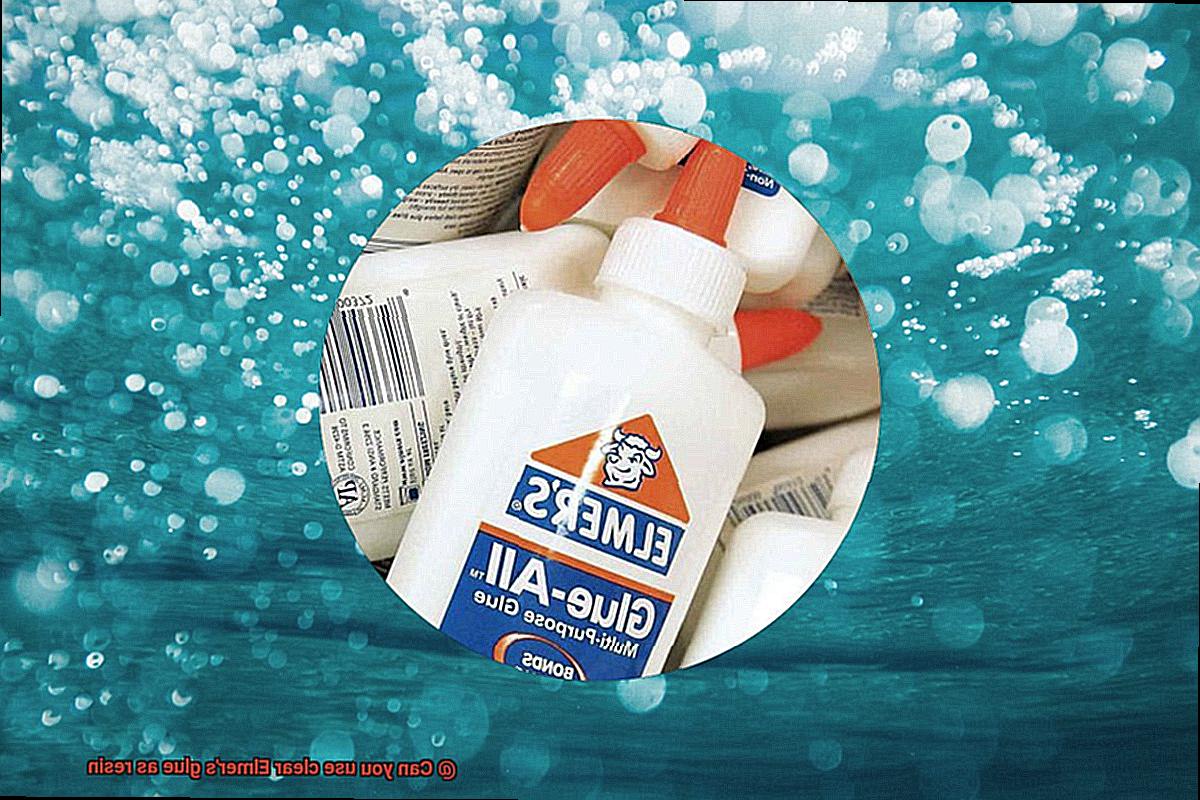
Lastly, using clear Elmer’s glue may not be cost-effective in the long run. Although it may be cheaper upfront than purchasing resin, you may end up needing to use more glue over time to achieve the same results as resin. This will eventually add up to additional expenses.
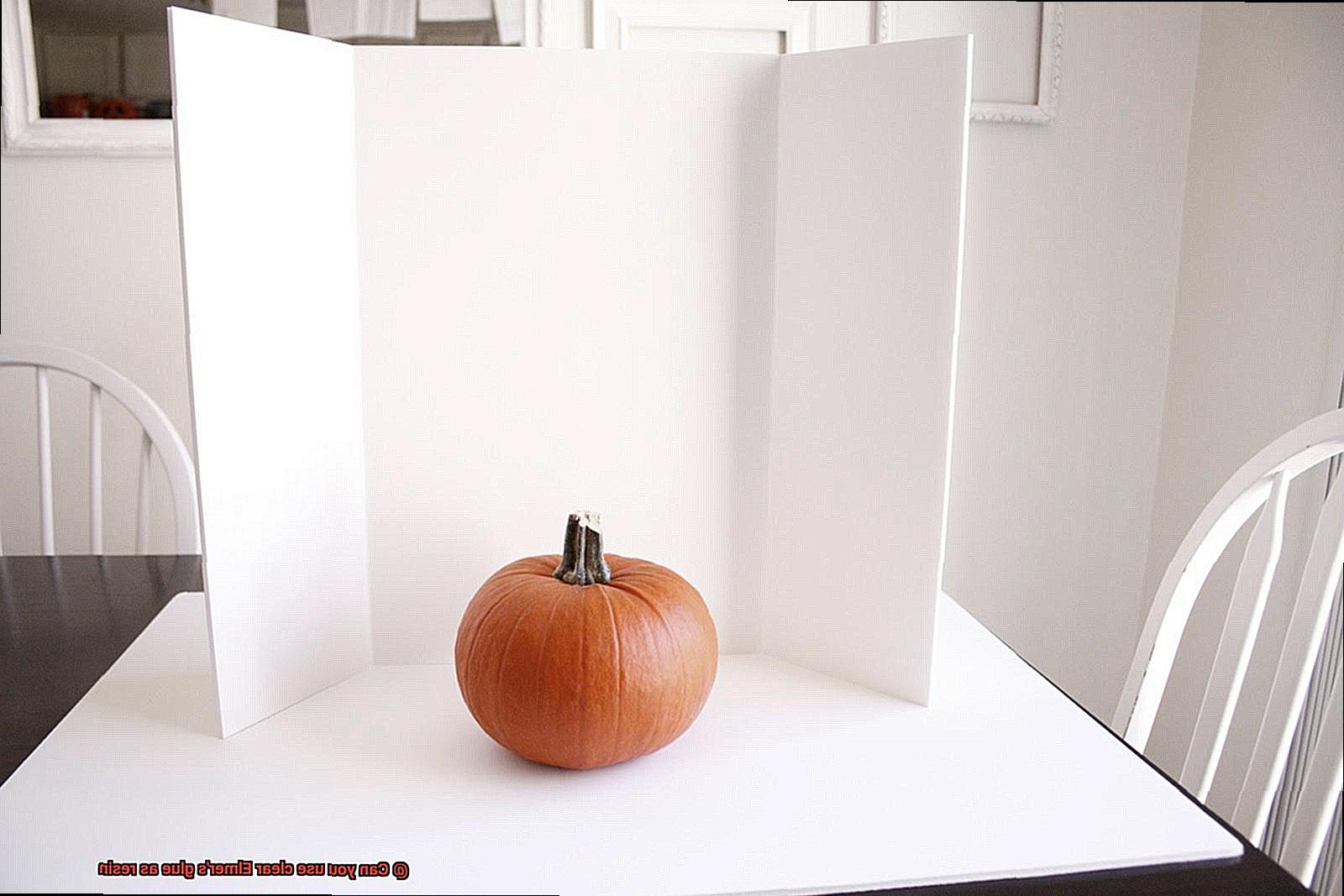
Applications for Clear Elmer’s Glue and Resin
Well, look no further because I am here to share my expert knowledge with you.
When it comes to clear Elmer’s glue, this adhesive is a staple for arts and crafts projects. It’s perfect for creating fun and stretchy slime by mixing it with borax and water. Additionally, clear Elmer’s glue is great for making jewelry or other small crafts, as it dries clear and can be painted or decorated after drying. And if you need a quick fix for minor imperfections, this glue is a reliable option for filling in small cracks or gaps in surfaces.
Now let’s talk about resin. This durable material is commonly used for sealing and protecting surfaces like wood, metal, or other materials. It provides a glossy finish that not only makes the surface look great but also protects it from damage. Resin can also be used in casting and molding projects, such as creating sculptures or reproducing small objects. It’s a versatile material that professionals and industrialists alike use in a variety of applications.
While clear Elmer’s glue may not be as strong or durable as resin, it can still be a viable option for certain projects. For example, it can be used as a temporary fix until a more permanent solution can be found. Furthermore, it’s an excellent choice for smaller projects where resin may not be necessary.
In summary, both clear Elmer’s glue and resin have their own unique uses and benefits that vary depending on the project at hand. But don’t forget that clear Elmer’s glue can also be used as a substitute for resin in some cases. So next time you’re selecting an adhesive, consider the specific needs of your project, and choose accordingly.
To recap, here are some of the applications for clear Elmer’s glue and resin:
- Clear Elmer’s glue: slime, jewelry, small crafts, filling in small cracks or gaps
- Resin: sealing and protecting surfaces, casting and molding projects
Wt1qyYBG-BQ” >
Conclusion
Crafting is a hobby that brings joy and satisfaction, but it can also be costly. If you’re looking for a more affordable alternative to resin, clear Elmer’s glue might be worth considering. Although this water-based adhesive shares some similarities with resin, such as transparency and adhesion, it cannot replace it entirely. Clear Elmer’s glue could work for specific projects, but it is not as long-lasting or durable as resin and does not hold up well against moisture and heat.
Clear Elmer’s glue has become a popular choice for small-scale projects like school assignments, paper crafts, and minor repairs. It dries quickly and creates a sturdy bond between materials like cardboard, fabric, and paper. Resin is perfect for projects requiring strength and resistance to harsh conditions such as jewelry making, furniture manufacturing, boat building, and automotive repair.
Although clear Elmer’s glue may not be as robust or long-lasting as resin, it can still serve as an option for certain projects. For instance, it can act as a temporary fix until you find a permanent solution. Furthermore, it is an excellent choice for smaller-scale projects where resin may not be necessary.
In conclusion, both clear Elmer’s glue and resin have their unique benefits that vary depending on the project at hand. When selecting an adhesive for your crafting needs, consider the specific requirements of your project before choosing either option.



